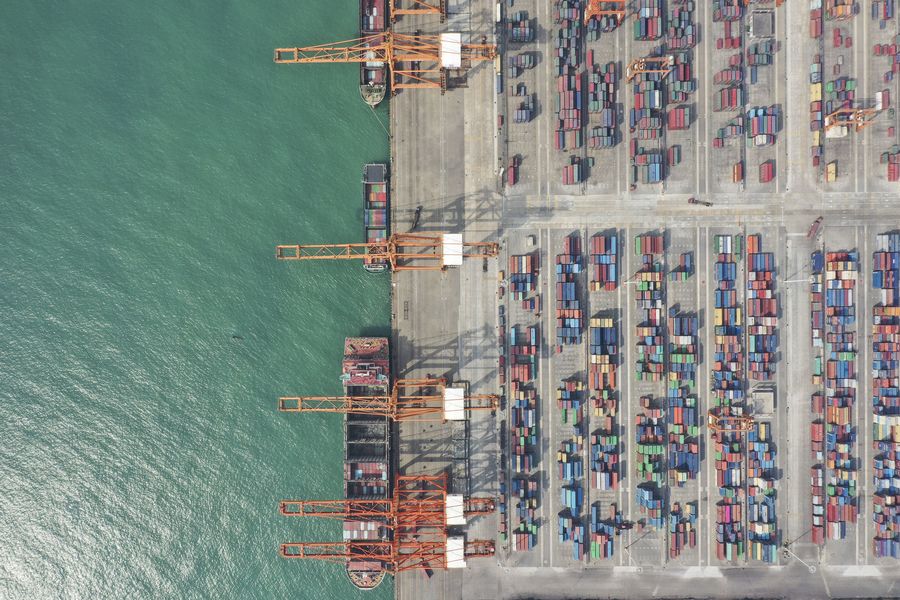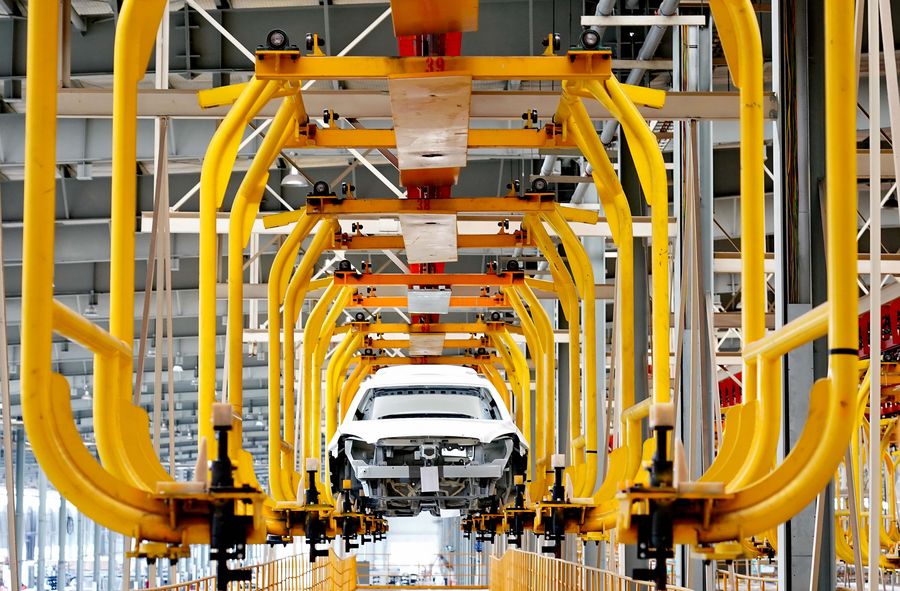
Aerial photo taken on Nov. 23, 2019 shows a container terminal at Qinzhou Port in south China's Guangxi Zhuang Autonomous Region. (Xinhua/Cao Yiming)
In November, PMI of high-tech manufacturing, equipment manufacturing and consumer goods all rose for two consecutive months, showing accelerated transformation and upgrades, according to the National Bureau of Statistics.
BEIJING, Nov. 30 (Xinhua) -- The purchasing managers' index for China's manufacturing sector firmed up to 50.2 in November from 49.3 in October, the National Bureau of Statistics (NBS) said Saturday.
A reading above 50 indicates expansion, while a reading below reflects contraction.
November's figure re-entered the expansion zone, ending month-on-month contraction reported in the previous six months in a row, said NBS senior statistician Zhao Qinghe.
On a month-on-month basis, the sub-index for production gained 1.8 points to 52.6 in November, signaling faster expansion, while that for new orders rebounded by 1.7 points to 51.3, back in the expansion zone.

Photo taken on Nov. 9, 2019 shows lipsticks at the Lifestyles exhibition area of the second China International Import Expo (CIIE) in Shanghai, east China. (Xinhua/Liu Ying)
Improvements were seen in both the supply side and demand side, with both indices at their highest level since the second half of the year, said Zhao.
Imports and exports were improving in November, said Zhao, as the NBS data showed the sub-index for new export orders gained 1.8 points to 48.8, while the index for imports climbed 2.9 points to 49.8.
Chinese enterprises, in general, reported prosperity rebounds, with the PMI of large enterprises up 1 point from the previous month to 50.9, back in the expansion zone.
In November, PMI of high-tech manufacturing, equipment manufacturing and consumer goods all rose for two consecutive months, showing accelerated transformation and upgrades, said Zhao.
Meanwhile, China's non-manufacturing sector registered faster expansion in November with its PMI at 54.4, up from 52.8 in October, NBS data showed.
"The distinct pick-up in the manufacturing PMI resulted from multiple positive factors," said Wen Tao, an analyst with the China Logistics Information Center, noting that domestic market demand potential has been released upon the country's counter-cyclical adjustments and tax cuts.

Photo taken on July 6, 2019 shows a production line at a subsidiary of Beijing Electric Vehicle Co., Ltd. (BJEV), a new energy vehicle producer, in Huanghua city of Cangzhou, north China's Hebei Province. (Xinhua/Yang Shiyao)
While year-end holiday consumption expectations drove the growth of the consumer goods industry, stable growth of several key industries offered support for the economic operation, said Wen.
Zhang Liqun, a researcher with the Development Research Center of the State Council, said the favorable rebound showed stabilizing signs of the economy, but the foundation needs to be further consolidated.
As the downward pressure remains, efforts should be stepped up in expanding domestic needs and strengthening the stabilization, said Zhang.
Saturday's data also showed China's composite PMI went up 1.7 points from a month ago to 53.7, indicating faster business expansion. ■



